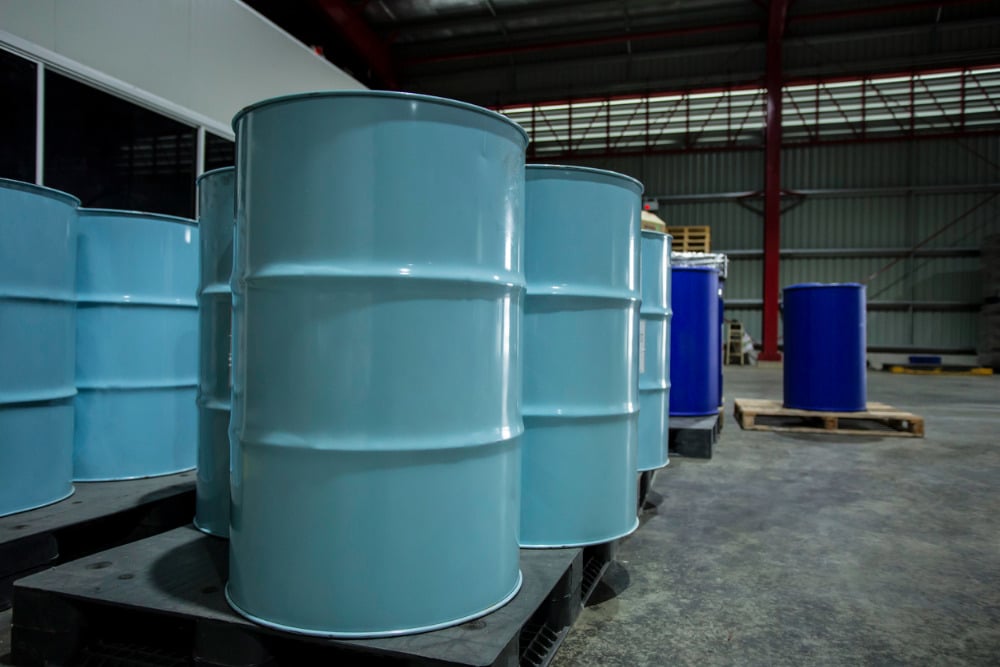Have you ever wondered where other large food processing plants dispose of their unwanted by-products after production is complete? If you are in the industry, chances are you definitely have. While many of these products end up in landfills, what exactly happens to waste that can’t be disposed of easily, like used vegetable oil?
The improper disposal of bulk used vegetable oil causes serious damage to local water supplies, sewers, and septic systems. Once the oil cools, it congeals and clogs up drainage pipes, creating a bottleneck in the system. It can also corrode metal and other materials.
Used Vegetable Oil as Bioenergy
In the past, used vegetable oil was utilized for animal feed. In recent years, the demand for alternative energy sources has increased and biodiesel is one of the best alternative sources of energy, and many companies have embraced its use.
Today, as the demand for biodiesel increases, infrastructure has developed where food production facilities can sell their used vegetable oil to recycling companies who specialize in the processing of this material. These businesses refine the oil and sell it to customers in other industries for biofuel.
The burning of fossil fuels releases new carbon dioxide into the atmosphere, but biofuels have a reduced impact.
Although some carbon dioxide is produced, the plants used for vegetable oil production absorb carbon dioxide during growth, which offsets the emissions when used as biofuel.
Fuel produced from used vegetable oil burns clean and does not produce carbon monoxide, making it 100 percent safe for use.
Transforming Used Vegetable Oil into Biodiesel

Companies like GF Commodities buy used vegetable oil in bulk from any place where it is used in excess to produce a consumer product.
The used vegetable oil is collected and transported to a recycling unit where it is cleaned and filtered to a particular specification before it is ready for the biofuel refineries. A liter of used vegetable oil produces approximately a liter of biodiesel.
Learn more about vegetable oil pick up and transportation with GF Commodities
The collected vegetable oil goes through several processes before being used as biodiesel.
Once at the recycling plant, a team assesses the quality of the used vegetable oil and grades it. They will check the clarity and color of the oil to determine how long it needs refining.
Next, the used vegetable oil is pre-filtered. The oil is put in a container that acts as a sieve, so the food and other solid impurities are separated from the liquid.
The used oil is then heated inside the tank to make it less viscous. The heating process lets the smaller debris, water and other impurities in the oil settle to the bottom of the container where they are later removed.
The filtered oil is piped into another filtering system where it is cleaned more thoroughly until it meets the specifications set by biodiesel refineries.
Once the filtered oil meets biodiesel standards, it is then transferred to a bulk storage tank. This tank is emptied every few days, and the filtered oil is delivered to biofuel refineries for conversion to biodiesel.
Once the filtered oil arrives at the biofuel refinery, it is transferred to a chamber and mixed with alcohol (usually methanol) and a catalyst (usually potassium hydroxide). This process is called transesterification. The blending action ensures that every molecule reacts with the methanol and potassium hydroxide. The vegetable oil and the other reactants produce biodiesel and glycerol, which is a co-product of the chemical process
The product is once again filtered to separate glycerol and other residues, including excess alcohol and trace amounts of water.
Glycerol is denser than the biodiesel produced so it is easily removed. Glycerol is used in the food industry as a filler and a preservative. Excess alcohol and water are recovered using distillation and typically reused.
Converting used vegetable oil into biodiesel is a complicated process that requires extensive technical knowledge and experience. Improper processing of used vegetable oil may produce biodiesel that has high toxicity levels and potentially harmful by-products.
At GF Commodities, we aim to be the number one, nationwide option for businesses looking to sell yellow grease like this and add a secondary income stream in their business model. We take unwanted used oil off of your hands to sell to other industries that need them.
Call Dan Kozubek at 816-812-8685 today to discuss more about recycling your bulk UCOs and making more money for your business, easily. GF Commodities offers the best market prices and collect at your convenience.



